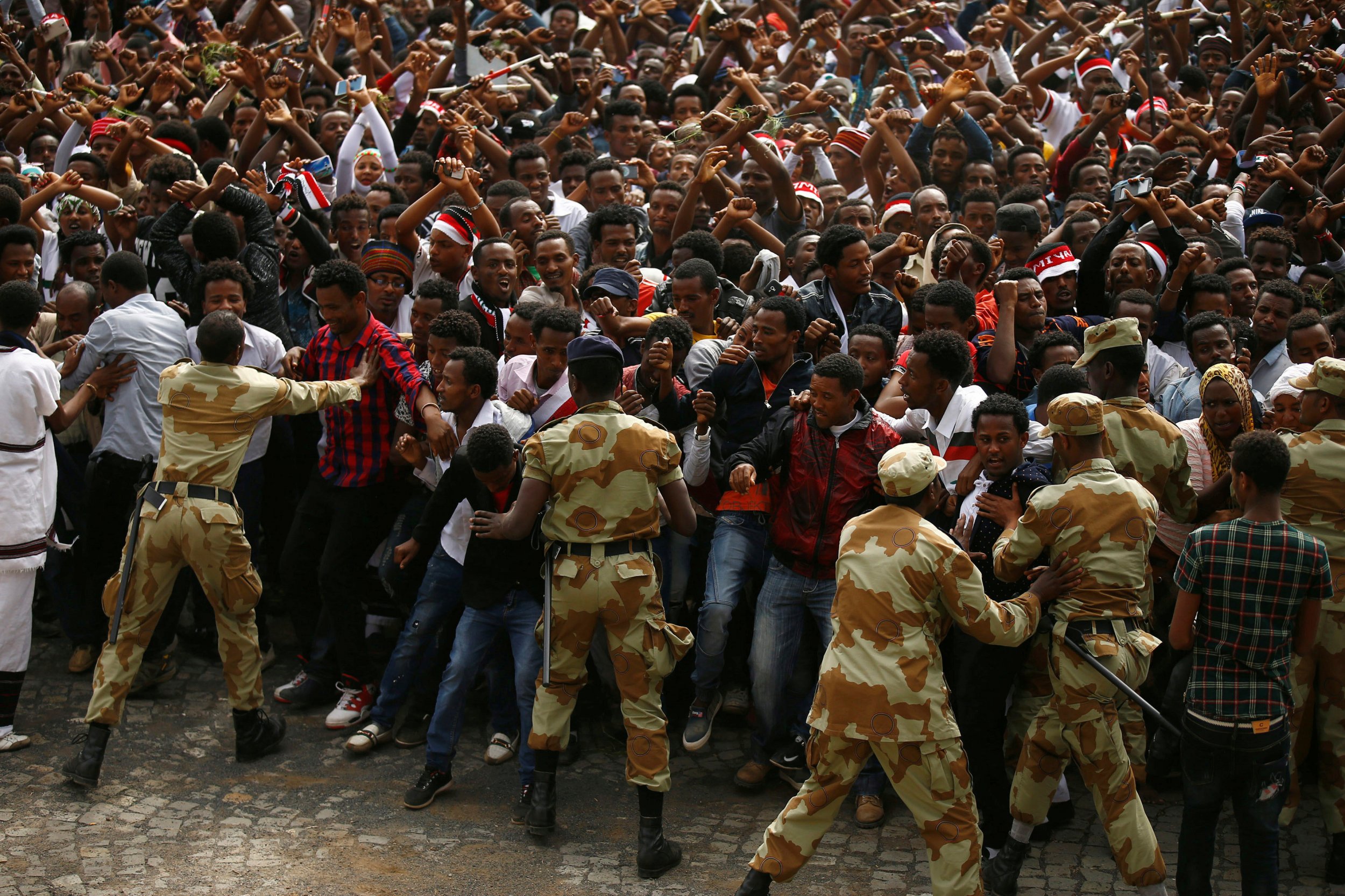
The U.N. has renewed calls to the Ethiopian government to let human rights officials conduct independent investigations into allegations of abuses by security forces against protesters in the country in 2015 and 2016.
High Commissioner Zeid Ra'ad Al Hussein made the plea Thursday, which marked the end of his three-day official visit in the East African nation.
Demonstrations broke out in Ethiopia's Oromia region in November 2015 and later spread to the Amhara region in the country's northwest, growing into what has been considered the biggest anti-government unrest in Ethiopia's recent history. The unrest prompted the country to declare a state of emergency—still in place today—that put an end to the protests.
Ethiopia's Human Rights Commission concluded, in a report released in April, that the unrest had resulted in the deaths of 669 people, including 63 policemen, since November 2015.
Hussein praised the Commission's work. However, he added: "I believe my staff ought to be given access to the affected areas, and I renew my request so we can assess the situation and ascertain what further support can be given to the authorities, including justice officials. In the meantime, we will study the latest report of the Ethiopian Human Rights Commission, and I hope to return to Ethiopia early next year to assess the progress made on this issue."
Last year, the U.N. and the European Parliament called on Ethiopia to allow "an international commission of inquiry to investigate the protests and the violence," but Ethiopia's Prime Minister Hailemariam Desalegn rejected such calls in April, saying his government had nothing to hide, AP reported.
Rights groups have voiced concerns about the commission's report, suggesting it fails to give an accurate picture of the security forces' responsibility for the casualties. They have accused security forces of killing hundreds of people, opening fire on unarmed protesters and arbitrarily arresting protesters, journalists and human rights defenders during the protests. However, while the Commission recommended prosecution of some police officers, it maintained that the overall response by security forces was adequate.
Protesters were initially angered by government plans to expand the territory of the Ethiopian capital Addis Ababa, with farmers raising concerns that increasing the size of the city would lead to forced evictions and loss of arable land.
The government later scrapped the plans, but demonstrations continued. Protesters argued for a greater inclusion in the political process, claiming they had been marginalized. The Ethiopian government is dominated by the Tigray minority, which represents 6.2 percent of the total population.
Protesters also called for the release of political prisoners. Rights groups have often accused Ethiopia of arresting and subjecting political activists and opposition leaders to unfair trials.
Uncommon Knowledge
Newsweek is committed to challenging conventional wisdom and finding connections in the search for common ground.
Newsweek is committed to challenging conventional wisdom and finding connections in the search for common ground.
About the writer
To read how Newsweek uses AI as a newsroom tool, Click here.








